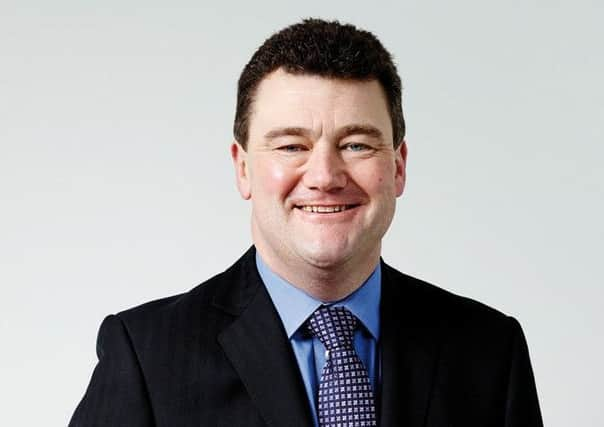Royal London looks to Dublin to '˜de-risk' Brexit shift
This article contains affiliate links. We may earn a small commission on items purchased through this article, but that does not affect our editorial judgement.


Phil Loney, Royal London’s group chief executive, unveiling a 28 per cent lift in new life and pensions business to £8.68 billion in 2016, said the group was in the early stages of turning its existing business in the Republic of Ireland into a legal entity to facilitate business in the EU after the UK’s exit.
“I think that will pretty much de-risk our business,” said Loney, whose group employs about 1,100 in Edinburgh and about 100 in Glasgow.
Advertisement
Hide AdAdvertisement
Hide Ad• READ MORE: Finance jobs outside London face post-Brexit risks
However, he added that it would be “much preferable” for the UK to leave the single market with a trade deal with the EU, as reverting to World Trade Organisation (WTO) rules would “create a great deal of uncertainty and be difficult for the services sector”.
Royal London is already the fourth biggest life insurer in the Republic of Ireland, which is part of the EU, and talks are going on with the Irish central bank about making that business a legal rather than operational entity.
Loney also said that “nearly all” the group’s business was in the UK, with the Republic of Ireland accounting for “less than 5 per cent”.
He added that the launch of auto-enrolment pensions had been an “obvious success”, but gave warning that entrants were not putting enough money in to safeguard a comfortable retirement.
“Automatic enrolment has been an undoubted policy success but there is no coherent plan to increase contributions to levels that will produce an adequate income when those workers retire,” Loney said.
“The government has just concluded a review of the detail of its auto-enrolment policy, but this key issue was ignored. We know that for most people an 8 per cent pension contribution, made by themselves and their employers, falls well short of providing an adequate level of income in retirement.
Advertisement
Hide AdAdvertisement
Hide Ad“It is time for government to bite the bullet and adopt a clear policy about saving at realistic levels beyond 8 per cent. Doing so would help to secure an appropriate level of income in retirement for generations of pensions savers.”
Sales of group pensions were up 38 per cent to £3.87bn “reflecting buoyant sales in the market for workplace pensions”.
The group’s profit margin for new life and pensions business rose to 2.5 per cent from 2 per cent while funds under managment rose 18 per cent to £100bn in 2016, up from £85bn in the previous year.
“The increase has in part been helped by rising bond values reflecting a reduction in interest rates,” the company said. “This is a particularly strong result in a period of market uncertainty following the UK referendum on EU membership.”
The mutual’s overall operating profit lifted 16 per cent to £282m from £244m in 2015.
Royal London struck a deal last January with the Post Office by which it is the sole provider of life insurance products to the latter.
• Insurance market Lloyd’s of London is to establish a subsidiary in Brussels to maintain a presence in Europe once Britain divorces from the EU.
Advertisement
Hide AdAdvertisement
Hide AdThe firm said the Belgian capital was at the top of its list after scoring highly with executives for its regulatory framework and access to talent.
The move means Lloyd’s will be able to write risks from all 27 European Union and three European Economic Area states after Brexit.
Chief executive Inga Beale told the BBC’s Today programme: “What we were after was some jurisdiction that had a really robust reputation for regulation, we also wanted to be able to access talent and we wanted really good accessibility. Brussels came out top of our list.”
However, she said tax was not a factor in the company’s decision when choosing a new EU base. Lloyd’s, which employs some 700 people in London, aims to start work at the Brussels office from 1 January 2019.
It is believed the move will result in about 100 jobs being shifted from London, although that number could rise as the insurance market establishes itself in Belgium.
It came as the company unveiled its full-year results, with profits flat for 2016 after the firm wrestled with “extremely challenging” conditions driven by pricing pressures.
Annual pre-tax profits came in at £2.1 billion, the same as the year before, but gross written premiums lifted 11 per cent to £29.9bn over the period.
Lloyd’s said the level of major claims had reached £2.1bn – the fifth highest since the turn of the century and above the long-term average – following the devastating effects of Hurricane Matthew and the Fort McMurray Wildfire in Canada.